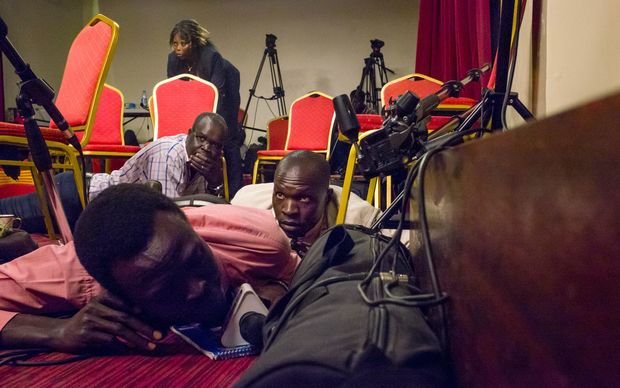
The Association for Media Development in South Sudan (AMDISS) has criticized the Media Authority for banning 20 foreign journalists from entering or operating within the country for allegedly reporting unsubstantiated and unrealistic stories.
The Media Authority said recently that the journalist prohibited from covering issues in South Sudan have often reported stories that have the potential to incite hate and violence among South Sudanese.
The regulatory body was created under a bill signed into law in 2014. Its members, including representatives of the National Security Service, Ministry of Culture and Ministry of Cabinet Affairs, were appointed by President Kiir.
Speaking to Radio Tamazuj on Thursday, Secretary General of AMDISS, Koang Pal Chang described the decision to ban foreign journalists as “illegal”, stressing that the Media Authority should be independent.
Chang further said the country has laws and institutions that should deal with journalists who do not adhere to the code of ethics and laws of the country.
He revealed that as a media body, they requested the Head of the Media Authority for reports on the banned journalists but he was not able to neither avail any nor reveal the names of the foreign journalists.
Chang described the move as contrary to President Salva Kiir’s directives to security operatives to allow media freedom ahead of the national dialogue.
Meanwhile, the Foreign Correspondents’ Association of East Africa (FCAEA) has issued a statement calling on the government of South Sudan and its Media Authority to immediately stop blocking international journalists from working in South Sudan.
The association further said the affected journalists are experienced professionals, nearly all of whom have previously had bylined work on South Sudan published or broadcast internationally.
“The FCAEA strongly rejects comments made this week by the head of South Sudan’s Media Authority Elijah Alier and quoted in local media, in which he accused the blocked journalists of disseminating “unsubstantiated and unrealistic stories” that incite violence and hate,” partly reads the statement.
The FCAEA urged the international community to continue prioritising media freedom and access in South Sudan for international journalists and South Sudanese colleagues who face horrifying work conditions and threats to their security.
The association is one of the largest foreign correspondents’ body in Africa, representing the interests of some 500 journalists and media professionals based in East Africa.
Radio Tamazuj
